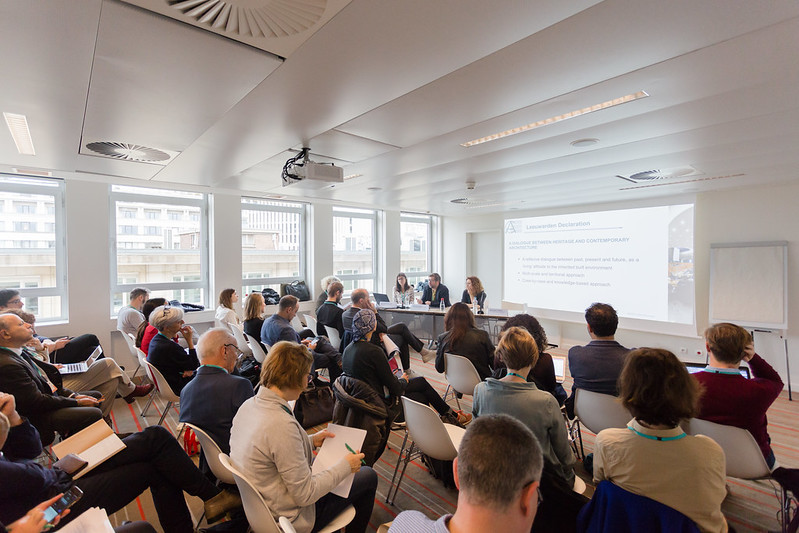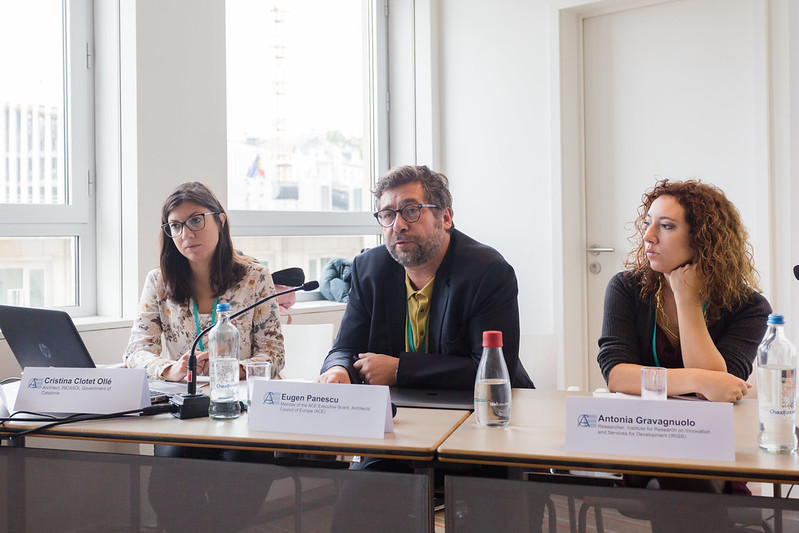
- News
- Publications
- Press releases
- Links
- Contact
- Members area

In the framework of the European Week of Regions and Cities, the Architects’ Council of Europe organised on Wednesday 9 October a workshop on the Adaptive Re-use of our Built Environment for a Greener Europe, in collaboration with the Federal Chamber of German Architects (BAK) and the DG Culture and Education of the EU Commission.
Many heritage places are nowadays disused or have lost the functions for which they were originally built. Through smart renovation and transformation, they can find new, mixed or extended uses. As a result, their social, environmental and economic value can increase, while their cultural significance is enhanced. The workshop aimed to discuss the benefits, challenges and barriers inherent to the re-use of heritage places and how quality re-use projects contribute to a greener Europe. It also provided the opportunity to discuss the Leeuwarden Declaration that was adopted last year by several stakeholders of the heritage sector, as a legacy of the European Year of Cultural Heritage. This Declaration highlights the possible benefits of adaptive reuse of heritage sites and lists quality principles to reconcile heritage values with contemporary architecture.

Speakers:
- Eugen PANESCU, member of the ACE Executive Board
- Cristina CLOTET OLLÉ, Institut Català del Sòl (INCASÒL), member of the Urban Agenda Partnership on Sustainable Use of Land and Nature-Based Solutions
- Antonia GRAVAGNUOLO, representative from the CLIC project (Horizon 2020), which applies circular economy principles to cultural heritage
- Kristiaan BORRET, Bouwmeester of the City of Brussels
Moderator: Erminia Sciacchitano, Cultural heritage polices and culture economics at @EU_Commission
Take away message
The adaptive reuse of our built heritage can help to build a greener Europe by regenerating and enhancing the economic, social, environmental and cultural values of our built heritage. However, it is not a one-size-fits-all solution that will be applied in all circumstances. Smart interventions on heritage require a careful assessment of the place, issues and interests at stake and the surrounding urban fabric.